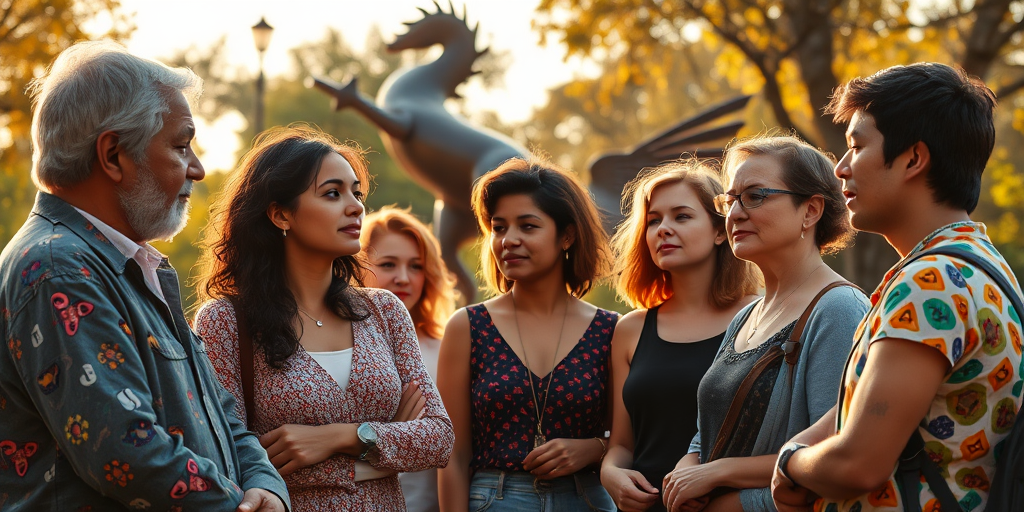Understanding the Psychology of LGBTQ+ Youth Justice: A Community Perspective
In recent conversations regarding LGBTQ+ youth justice in the United States, the role of family acceptance has emerged as a pivotal factor for improving the mental health of young individuals. With 66% of LGBTQ+ youth reporting recent anxiety symptoms and 53% experiencing depressive symptoms, addressing these concerns through family and community support systems is more crucial than ever.
The Importance of Family Acceptance
Family acceptance acts as a strong protective factor, significantly impacting the mental well-being of LGBTQ+ youth. “The journey towards accepting a child’s LGBTQ+ identity is often nonlinear, requiring patience, understanding, and unlearning of biases,” says Dr. Emily Tran, a psychologist specializing in youth development. “Support can manifest itself in various forms, such as using chosen names and pronouns or attending LGBTQ+ events together.”
Cultural Nuances in Support
Cultural and familial contexts deeply impact how support is provided to LGBTQ+ youth. Latinx families, for instance, may express concern in culturally specific ways, emphasizing the need for service providers to adopt culturally humble approaches rather than one-size-fits-all solutions. “It’s vital for service providers to understand these cultural nuances to provide effective support,” notes local advocate Juan Martinez from the Rio Grande Valley Center for Diversity.
The Role of Community-Based Peer Support
Community-based peer support networks, like those facilitated by organizations such as Centerlink and PFLAG, enhance resilience among LGBTQ+ youth. These networks offer critical spaces for familial support and culturally competent education. Sarah Chavez, a coordinator at PFLAG Austin, explains, “These networks create safe environments where families can share experiences, learn from each other, and build supportive relationships.”
Acceptance: A Process, Not an End
The path to acceptance is not straightforward. Parents often encounter moments of confusion and progress, especially when cultural and religious beliefs come into play. Studies highlight that greater acceptance of LGBTQ+ youth by parents can reduce suicide risks, a fact that underscores the importance of empathy and understanding within families. “Encouraging structured communication, such as active listening workshops, can help families develop empathy and reduce misunderstandings,” suggests Dr. Tran.
Implementation Science and Community Collaboration
Implementation science partnerships, where researchers collaborate with community organizations, are crucial for adapting interventions suited to real-world contexts. This collaboration ensures that strategies are culturally responsive and effective. “Bridging the gap between academic research and community needs is essential for fostering sustainable support systems for LGBTQ+ youth,” asserts Prof. Maria Gomez from the University of Texas Rio Grande Valley.
Intersectional and Inclusive Programming
There’s a pressing need for intersectional and inclusive programming in schools and community settings to cater to the diverse needs of LGBTQ+ youth, including those from various racial and neurodiverse backgrounds. Programs addressing both autism and gender diversity, for example, are vital for affirming neurodiverse youth. “By ensuring programs are inclusive, we create environments where all young individuals can thrive,” emphasizes Martinez.
The Challenges of Systemic Stigma
While community and family support are imperative, LGBTQ+ youth continue to face legal threats and systemic stigma. Addressing these challenges requires a collective effort grounded in empathy and education. Community advocate, Linda Perez, notes, “Our focus should be on creating safer, more inclusive environments that allow LGBTQ+ youth to flourish and reach their full potential.”
Future Implications for the Community
The ramifications of enhanced support systems for LGBTQ+ youth extend beyond individual well-being. By fostering supportive familial and community environments, there’s potential for broader societal change. “These initiatives not only improve mental health outcomes but also pave the way for a more inclusive society,” states Chavez.
For residents looking to get involved or seek support, organizations like Centerlink and PFLAG provide valuable resources and opportunities for connection. It’s through collaborative efforts that communities can empower LGBTQ+ youth and address their unique needs, creating lasting local impact.
Conclusion
The psychology of LGBTQ+ youth justice highlights the power of family acceptance and community support in mitigating mental health challenges. As American communities continue to grapple with these issues, fostering empathy, cultural understanding, and collaboration remain key to building resilient youth and safer environments.







